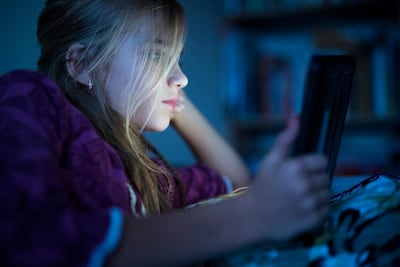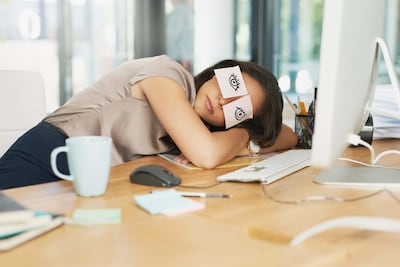Prise your finger off that snooze button, because we have some bad news for you (and turn off that TV, while you're at it). Many of the most popular shortcuts we use to help us catch some ZZZs might be doing absolutely nothing, according to a large-scale new study.
Researchers at NYU School of Medicine reviewed more than 8,000 websites to identify 20 of the most common myths about sleep, and compared them against scientific evidence. In their findings, recently published in the Sleep Health journal, researchers discovered that a number of tactics may in fact pose a significant risk to your health.
“Sleep is a vital part of life that affects our productivity, mood, and general health and well-being,” said Rebecca Robbins, the study lead investigator and a postdoctoral research fellow in the department of population Health at NYU Langone Health.
“Dispelling myths about sleep promotes healthier sleep habits which, in turn, promote overall better health.”
Below, we share five of the most common assumptions about sleep uncovered by the study, and reveal what you should really be doing to drift off.
Myth: you can survive on less than five hours sleep
US President Donald Trump only rests for four or five hours a night, according to his doctor. Fashion designer Tom Ford only gets three hours of shut-eye. Margaret Thatcher famously got by on just four hours a night.
However, believing you can adequately function on fewer than five hours of sleep a night is detrimental to your health, the NYU study found.
"We have extensive evidence to show sleeping five hours or less consistently, increases your risk greatly for adverse health consequences," said Robbins, citing heart attacks and strokes as potential outcomes.
Instead, researchers recommended catching winks for at least seven hours each night.
Myth: watching TV in bed will help you doze off

When sleep seems to be evading you, turning on a little background noise can be a distraction technique that some say help them drift off. However, that blue light emitted by TVs, phones and tablets is actually doing the opposite.
"These devices emit bright blue light, and that blue light is what tells our brain to become alive and alert in the morning," Robbins said. "We want to avoid blue light before bed, from sources like a television or your smartphone, and do things that relax you."
Instead, researchers recommend banning TVs and phones from the bedroom entirely, while medical websites suggest not looking at devices for two hours before bedtime. At the very least, dim screens as much as possible to diminish the amount of blue-light output.
Myth: you should just stay in bed when you can't get to sleep
We've all been there, spending what feels like hours tossing and turning, only to still stay cocooned in the duvet, hoping forty winks will soon arrive. After all, getting out of bed will only wake you up even more, right? Not quite, as it turns out.
"If we stay in bed, we'll start to associate the bed with insomnia," Robbins said in the study. "[It's like] going to the gym and standing on a treadmill and not doing anything."
Instead, if you've not drifted off after about 15 minutes, the lead investigator recommends getting up and completing a mundane task. "Keep the lights low and fold socks," she suggested.
Myth: it doesn't matter where or when you sleep

Any shut-eye counts towards getting our eight hours a day, so many would think. But not all sleep is created equal, and catching naps wherever you can isn't actually a great sign.
"Falling asleep instantly anywhere, anytime, is a sign that you are not getting enough sleep and you're falling into 'micro sleeps' or mini-sleep episodes," Robbins said. "It means your body is so exhausted that whenever it has a moment, it's going to start to repay its sleep debt."
If you're falling asleep at the drop of the hat throughout the day, it's worth seeing a medical professional to rule out any sleep-related conditions.
And from now on, try to resist the urge to nap – a long sleep could leave you feeling groggy and disorientated, and may leave you struggling to nod off later that night.
"As a general rule, we should not need to sleep at any other time other than the designated nocturnal sleep period," Dr Irshaad Ebrahim from the London Sleep Centre in Dubai told The National earlier this year.
Instead, the NYU study recommends we set and maintain a regular sleep cycle, to keep our body's circadian rhythm in check: "That controls all the hormones of the body, body temperature, eating and digestion, and sleep-wake cycles."
Myth: you'll feel more rested after a quick snooze
The temptation for just another few minutes of sleep sets in every morning, as soon as that alarm begins to ring. In reality, it might be doing absolutely nothing for you.
"When we wake up all of us have a little bit of inertia so realise that you will be a little bit groggy, all of us are," the study found. "But resist the temptation to snooze because unfortunately your body will go back to sleep but it will be very light, very low-quality sleep."
So while pausing that alarm might not do you any harm, it's not doing you any good, either – you'll likely spend more of the morning feeling out-of-sorts. Instead, researchers advised getting up as soon as your clock sounds. If that sounds too difficult, place your alarm on the other side of the bedroom, and force yourself to get out of bed. By the time you've turned it off, the idea of getting up and at 'em, might not seem quite so unappealing.


